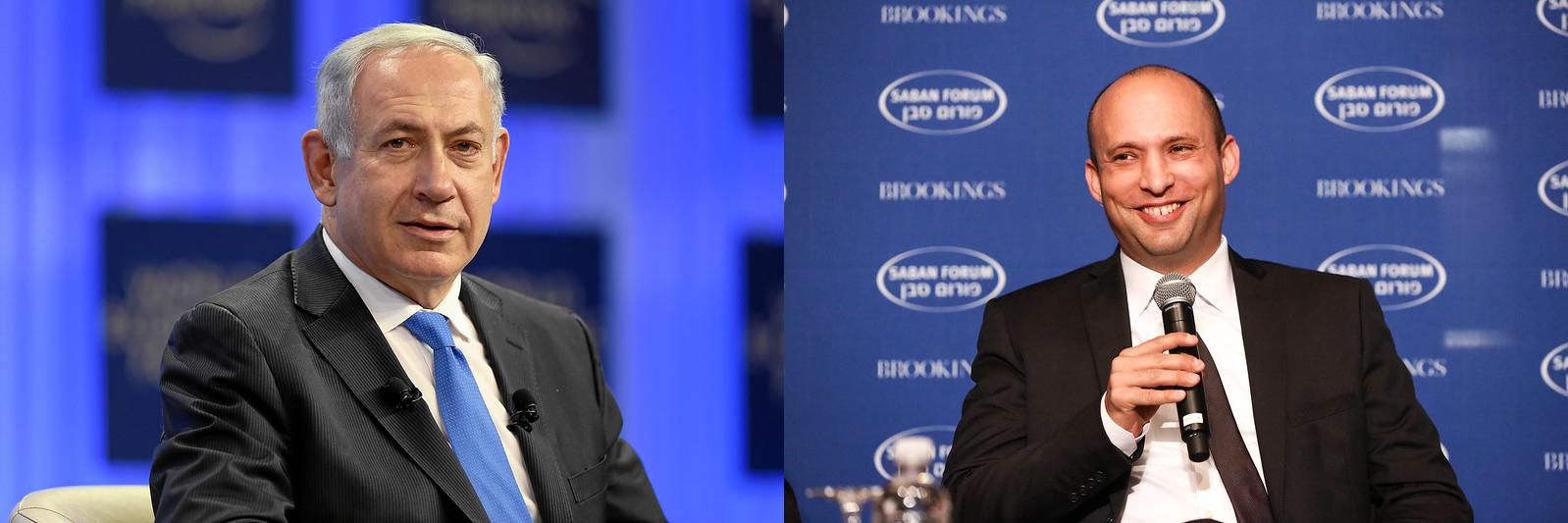Likud leader Benjamin Netanyahu was ousted as Israel’s prime minister on June 14, 2021, after Naftali Bennett and his Yamina party formed a government with other right and center-right Israeli parties. While both Bennett and Netanyahu have political differences, both leaders agree on confronting Iran, its nuclear program, and its terrorist activities against Israel.
In 2015, when the Obama Administration and other world powers decided to negotiate with Iran over its nuclear program, then-Israeli Prime Minister Bibi Netanyahu warned against such actions, arguing that it would threaten Israel’s security. In 2020, with Netanyahu’s loss of premiership and the renewed talks between the U.S. and Iran over the nuclear deal, many thought Naftali Bennett and his government would be open to such negotiations. Instead, Bennett, like many other members of the Knesset, has continued to echo Netanyahu’s hardline stance against Iran and its nuclear program—nor has he shied from using military force.
Bennett, like his predecessor, understands that negotiating with a radical Islamic regime that has openly called for the complete and total destruction of the state of Israel and the Jewish people since 1979 will amount to nothing. The new prime minister knows that if the mullahs in Iran were to produce even one nuclear bomb, it would drastically jeopardize Israel’s security; the Israeli government must explore all options and scenarios by which to prevent this..
Both Bennett and Netanyahu understand that the Iranian nuclear deal emboldens and enriches an extremely anti-Israeli terror state that would further expand Iran’s influence in the Middle East. The agreement has time-limited Iranian arms control that expires and allows the regime to have a fully industrialized nuclear program, no limitations on centrifuges, no limits on its stockpiles of nuclear fissile material, and lifted economic sanctions. Bennett and Netanyahu correctly understand that giving the Islamic Republic permanent benefits up-front in exchange for time-limited restrictions as outlined in the nuclear agreement merely appeases and emboldens while doing nothing to prevent them from having nuclear weapons at all.
Netanyahu would address Iran’s nuclear production throughout his tenure as prime minister, frequently attempting to garner support for actions against the Iranian regime at the United Nations general assembly. In his first address to the Assembly, Bennett also discussed Iran’s nuclear production, claiming that the international community is choosing to ignore evidence of secret nuclear sites in Iran. The new prime minister understands that the best possible solution for Iran’s nuclear ambitions is using international sanctions and military force to apply pressure to top Iranian interests.
Unlike Bibi Netanyahu, Bennett has received some good news with regards to the U.S. and its renewed talks with Iran on the nuclear program. In recent negotiations, the Iranians have asked for more concessions than the original deal in 2015. The demands from Iran and its unwillingness to compromise have worn-out U.S. officials, increasing the possibility of no nuclear agreement being reached. The longer Iran and the U.S. are in heated talks, the more time it buys for Bennett and the Israeli government to prepare for the worst.
The Israeli Knesset, under Bennett’s leadership, has agreed to increase defense spending by billions of dollars to prepare for a potential strike against Iran. Just like Bibi Netanyahu, Bennett has ordered the Israeli Defense Force, or IDF, to come up with operational plans against Iran and its nuclear program. The new prime minister understands that with Iran upgrading its military and defense, it is vital that Israel does the same.
If a strike were to occur against the Iranian regime and its nuclear sites, Bennett, like Netanyahu, realizes that Israel and the Saudis must have official normalization ties because of how close Saudi Arabia is to Iran. Both Netanyahu and Bennett understand that as the Iranian regime grows more and more radical, the likelihood that more Arab countries will unite with Israel increases, as does the possibility of some ‘unified Middle Eastern coalition’ focused on stopping Iran, and perhaps even toppling the mullahs.
While some point out that Netanyahu was openly against talks between Iran and the Obama Administration over Iran’s nuclear program from the start, whereas Bennet seems more open to the Biden administration’s negotiations, Bennett’s actions in Israel and abroad are all reflective of Netanyahu’s hardline stance. More likely than not, Bennett is simply entertaining the Biden Administration and their negotiations; he has correctly explained to U.S. officials that should diplomacy fail, Israel will do whatever is necessary to defend itself against Iran.
So long as Iran’s nuclear threat remains, it’s likely that every Israeli prime minister will continue to echo Netanyahu and Bennett’s staunch position against the Iranian regime, irrespective of the external pressures from any Western superpower.
“The views expressed in this post reflect the views of the author(s) and not UCLA or ASUCLA Communications Board.”

